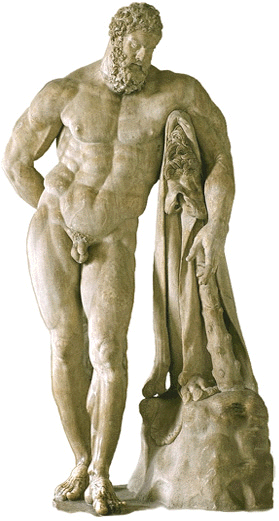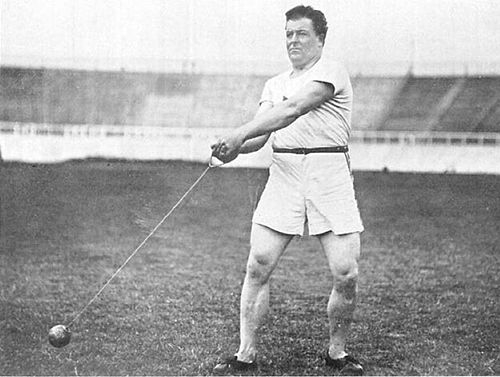- + New Debate
- Debate News
- About
- Debra AI More
frame
Howdy, Stranger!
It looks like you're new here. If you want to get involved, click one of these buttons!
DebateIsland.com is the largest online debate website globally where anyone can anonymously and easily debate online, casually or formally, while connecting with their friends and others. Users, regardless of debating skill level, can civilly debate just about anything online in a text-based online debate website that supports five easy-to-use and fun debating formats ranging from Casual, to Formalish, to Lincoln-Douglas Formal. In addition, people can improve their debating skills with the help of revolutionary artificial intelligence-powered technology on our debate website. DebateIsland is totally free and provides the best online debate experience of any debate website.
Communities
- 8.3K All Communities
- 254 Technology
- 1.9K Politics
- 675 United States
- 592 Global
- 65 Immigration
- 1.9K Religion
- 229 TV SHOWS
- 60 Movies
- 78 History
- 44 Work Place
- 475 Philosophy
- 411 Science
- 62 Earth Science
- 9 Books
- 101 Economy
- 34 Investments
- 14 Europe
- 10 Tea
- 7 Coffee
- 59 Sports
- 42 Products
- 283 News
- 13 Airplanes
- 33 Cars
- 851 General
- 9 Mafia Games
- 24 Art And Design
- 20 Space
- 50 Military
- 3 Premium Member
 DEBATE NEWS
DEBATE NEWS BREAKING NEWS
Kennedy family members endorse Biden for president
Members of the Kennedy family have endorsed President Biden's reelection campaign even though Robert F. Kennedy Jr. is still running as a third-party candidate for president in 2024. CBS News chief White House correspondent Nancy Cordes...
In this Debate
'Hercules' vs. Elite Athletes 100 Years Ago
Debate Information
Consider, if the Ancient Greeks built the 'Hercules' statue, then why were the Elite Athletes 100 years ago so comparatively inferior?
'Hercules'

'John Flanagan: 3 Time Olympic Gold Medalist at Hammer Throw'

'Hercules'

'John Flanagan: 3 Time Olympic Gold Medalist at Hammer Throw'

Post Argument Now Debate Details +
Arguments
Considerate: 91%
Substantial: 27%
Spelling & Grammar: 94%
Sentiment: Neutral
Avg. Grade Level: 7.76
Sources: 0
Relevant (Beta): 100%
Learn More About Debra
You missed the point entirely.
The Ancienct Greeks created a statue of a man who is highly physically advanced, even by todays standards; which is highly suggestive that (at least one) such a man existed thousands of years ago. Fast-forward 2000 years and the Elite athletes in the world looked like the stereotype of men who would have to be forced to take Gym class against their will, and would be happy Dodgeball is no longer part of the standard curriculum.
Do you have any thoughts on how and/or why this may be?
Considerate: 93%
Substantial: 80%
Spelling & Grammar: 92%
Sentiment: Positive
Avg. Grade Level: 9.46
Sources: 1
Relevant (Beta): 94%
Learn More About Debra
Not only that but a sample size of 1 isn't really very telling and you are basing your claim on an unevidenced assumptions - that the statue is representative in any way of greek stature and build at the time even though the statue is of a fictional demigod and that this bodytype didn't appear 100 years ago.
Considerate: 88%
Substantial: 91%
Spelling & Grammar: 93%
Sentiment: Positive
Avg. Grade Level: 13.24
Sources: 0
Relevant (Beta): 96%
Learn More About Debra
@Ampersand ;
(A) The Olympics is in fact intended to be the Elite athletes in the world who choose to engage in a competitive arena--thus proving their athletic ability
(B) I intentionally selected a 3 time world champion at a primarily strength-based event in order to really highlight the stark differences
(C) There is a strong correlation between muscular size and strength--which is why combat sports all have weight classes. Now, there are certainly varying degrees of optimizing strength to body size ratio, however this hardly overrides the previously mentioned correlation.
(D) Do your own research, the Elite athletes of 100 years ago are extremely unimpressive by nearly all measures
Considerate: 91%
Substantial: 81%
Spelling & Grammar: 96%
Sentiment: Positive
Avg. Grade Level: 13.4
Sources: 1
Relevant (Beta): 41%
Learn More About Debra
Hercules was a Roman God and the son of Jupiter.
Heracles was the Greek equivalent and was the son of Zeus.
Who was Gon?
Considerate: 85%
Substantial: 46%
Spelling & Grammar: 85%
Sentiment: Neutral
Avg. Grade Level: 6.12
Sources: 0
Relevant (Beta): 95%
Learn More About Debra
C) The point isn't about muscle size and strength because you don't seem to care about that, none of your points have actually been about someone being stronger or better than the other - you just think that one person has visible mucles while the other looks pudgy. Your entire point seems to be about whether someone has a low body fat content to show off those muscles - which seems to be the only metric you care about rather than how strong or how athletic someone actually is. By way of example here is a worlds strongest man competitor who would almost certainly be physically stronger than someone with the build of the Hercules statue. based on your logic, you would seem to call him inferior because he muscles aren't showy like that of a bodybuilders.
Low body fat to show off muscles =/= strength of your muscles
d) You are the one making the claim, the burden of proof is on your to provide adequate evidence to support it.Why would I try and make your argument for you?
E) You have given no response to this all being based on assumptions without a shred of evidence.
Considerate: 85%
Substantial: 83%
Spelling & Grammar: 94%
Sentiment: Positive
Avg. Grade Level: 12.56
Sources: 6
Relevant (Beta): 45%
Learn More About Debra
@xMathFanx, picking one photo is not a good sample. Also I think that perhaps with less media being available 100 years ago, and exercise/body building not mainstream, people weren't as much in shape as now. We also have no idea if statue of Hercules was based on a real person or imagination.
Considerate: 89%
Substantial: 49%
Spelling & Grammar: 87%
Sentiment: Neutral
Avg. Grade Level: 7.84
Sources: 0
Relevant (Beta): 41%
Learn More About Debra
That said, I would guess that people in the ancient times were, on average, in a significantly better physical shape than nowadays. People ate purely organic food, they had to do a lot of physical labor on an everyday basis to survive, and the expectations from life in terms of comfort were significantly lower, so people did not see working hard on their physical form as something terribly inconvenient.
They also had a much lower quality of life, however, as well as a much poorer understanding of human physiology, of healthcare and so on. That would be a factor benefiting modern athletes, as very effective diets and physical exercise programs have been developed over the millennia, and modern pharmaceutics are extremely potent.
Which one of these two factors has a stronger effect is hard to say without consulting professional historians.
Considerate: 97%
Substantial: 100%
Spelling & Grammar: 98%
Sentiment: Neutral
Avg. Grade Level: 13.18
Sources: 0
Relevant (Beta): 99%
Learn More About Debra